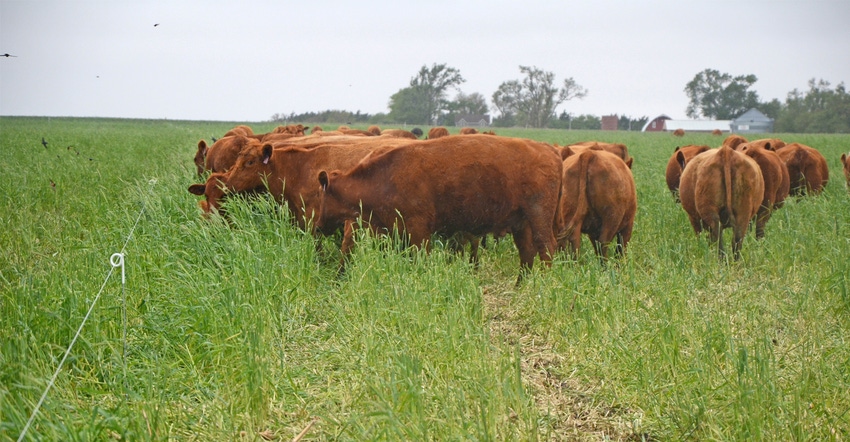July 14, 2021

Livestock farmers know that reducing the spread of disease and pests among their animals helps maximize profitability. Biosecurity includes understanding routes of transmission and taking steps to manage risk at the whole-farm level.
Producers who want to develop or improve a biosecurity plan now can access videos, tip sheets, checklists and other resources at a webpage developed by the Center for Food Security and Public Health at Iowa State University's College of Veterinary Medicine, cfsph.iastate.edu/biosecurity. The Farm, Food and Enterprise Development program of Iowa State University Extension and Outreach helped coordinate an outreach plan to help small-scale producers access these resources. The project was funded by USDA’s Sustainable Agriculture Research and Education (SARE) program
"We are excited to have the opportunity to work with the team at Iowa State University College of Veterinary Medicine to get these biosecurity resources into the hands of small-scale livestock producers," says Kendra Meyer, program assistant with the Farm, Food and Enterprise Development program with ISU Extension and Outreach.
Checklist for livestock producers
"These resources have helped me realize biosecurity practices that I am doing correctly and areas that I can improve in," says Jessica Cochran, a Nevada, Iowa, goat producer and advisory group member. "I think these resources are great tools for FFA and 4-H advisers to teach their members about livestock biosecurity practices."
Topics for producers include agritourism, animal health and disease monitoring, carcass disposal, cleaning and disinfection practices, wildlife and rodent control and many more.
Development of this material was made possible through a grant provided to the Center for Food Security and Public Health at the ISU College of Veterinary Medicine from the USDA National Institute of Food and Agriculture under award number AWD-021794-00001, through the North Central Region SARE program under project number ENC19-176.
For more information, contact Meyer at 515-294-9483 or [email protected].
Source: Iowa State University Extension and Outreach, which is responsible for the information provided and is wholly owned by the source. Informa Business Media and its subsidiaries aren't responsible for any of the content contained in this information asset.
You May Also Like




